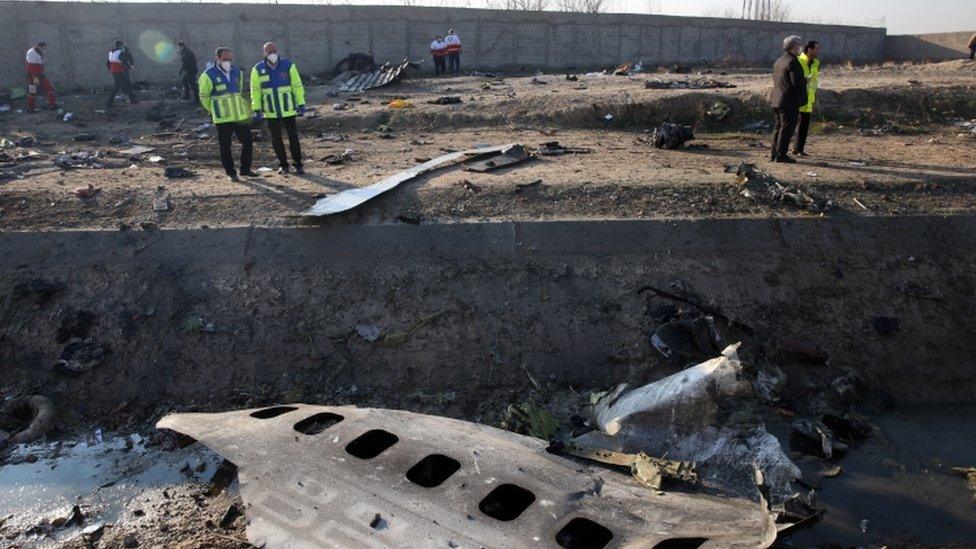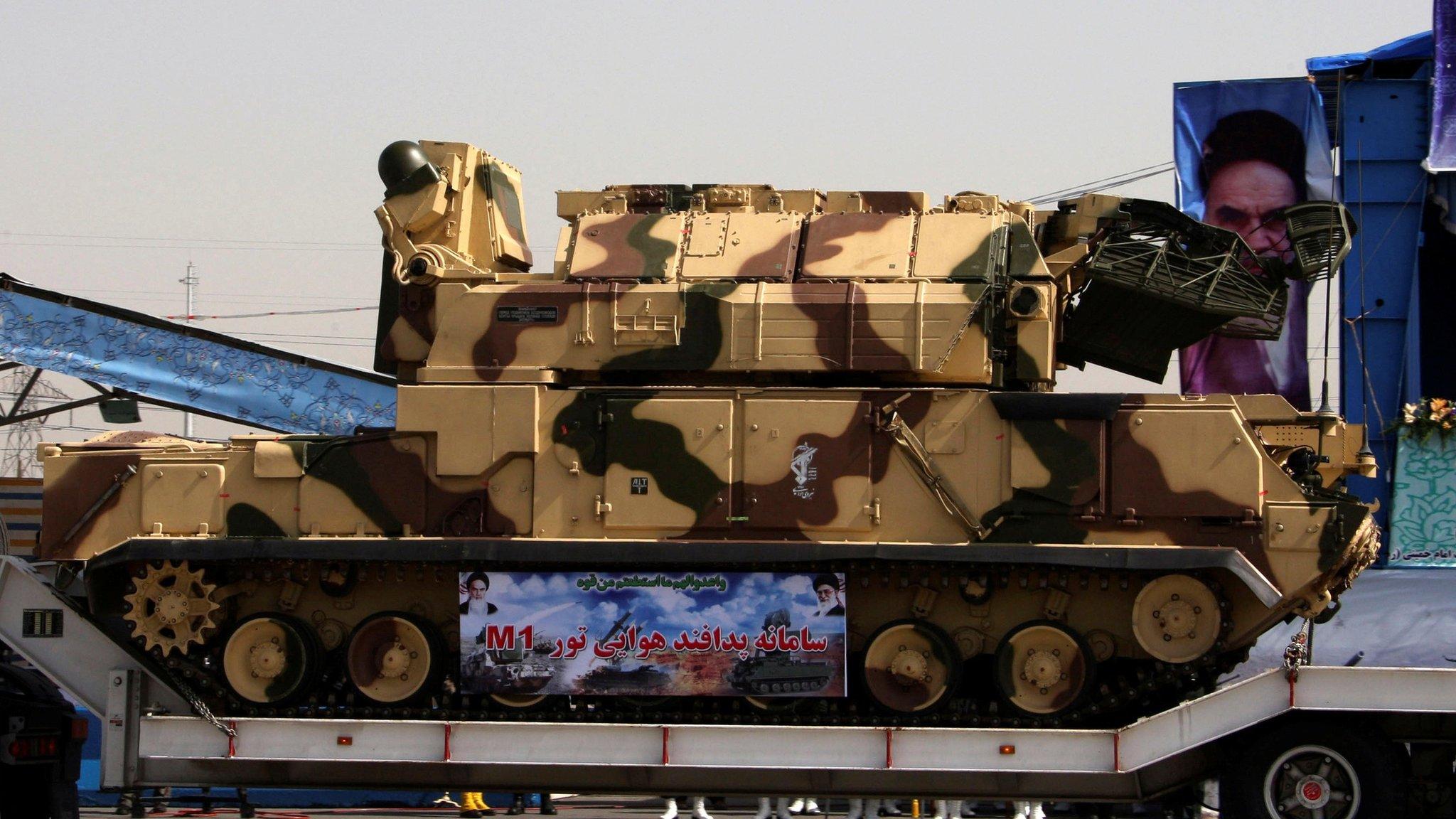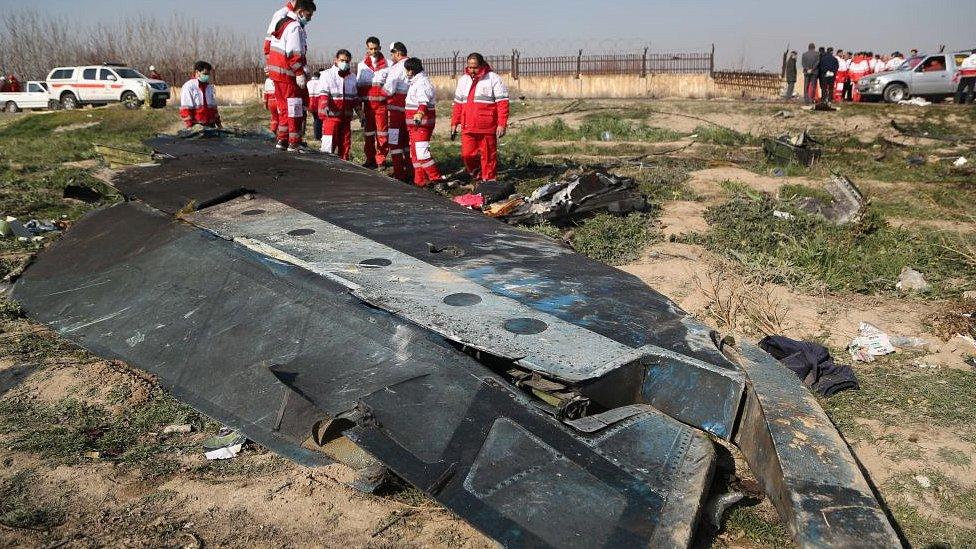Iran plane crash: 'Human error' to blame for downing of Ukrainian jet
- Published

The plane came down shortly after taking off from Tehran
Iran has said the misalignment of air defence equipment was responsible for the accidental downing of a Ukrainian passenger plane in January.
In a report released on Saturday, the Civil Aviation Organisation of Iran (CAOI) blamed "human error" and poor military communication.
All 176 people on board were killed when the plane was hit by two missiles shortly after take-off in Tehran.
Iran initially denied responsibility for the incident.
But after Western intelligence officials said evidence pointed to Iranian involvement, the country admitted fault, saying it had mistaken the plane for a cruise missile. Iranian President Hassan Rouhani described it as an "unforgivable mistake".
The Ukraine International Airlines flight was downed on 8 January amid heightened tensions between Iran and America.
Iran's air defences had been on high alert at the time. Hours earlier, the country had fired ballistic missiles at two US bases in Iraq in retaliation for the killing of top Iranian general Qasem Soleimani by a US drone strike in Baghdad.
What does the report say?
A full version of the CAOI's report has not been made publicly available, but excerpts have been published by state news agency Fars.
In its findings, the CAOI said the passenger plane travelled in a normal flight corridor, but the air defence unit that targeted it had recently moved and failed to calibrate its equipment correctly. As a result, it misidentified the civilian plane as a hostile object.
Mobile phone footage appears to show the plane in the moments before it came down
The report also said the missile battery could not communicate with their command centre, and fired on the plane without receiving official approval.
"If each had not arisen, the aircraft would not have been targeted," the CAOI concluded.
Last month, Iranian authorities said six people have been arrested over the incident.


Iran has repeatedly delayed releasing the plane's "black box", which holds key data and communications from the cockpit. It is expected to send the box to France for examination on 20 July, according to state news agency IRNA.
There has been much speculation about why Iran did not clear the skies during the attack. A recent audio recording obtained by Canada's CBC News suggests that the airspace remained open to avoid giving away Iran's intention to attack the US air base in Iraq.
The recording is allegedly a conversation between the family of one of the accident victims and Hassan Rezaeifar, who at the time was leading Iran's investigation into the incident.
Iran's Deputy Foreign Minister Mohsen Baharvand dismissed the recording, saying it could not be used as evidence.
- Published21 January 2020

- Published11 January 2020
